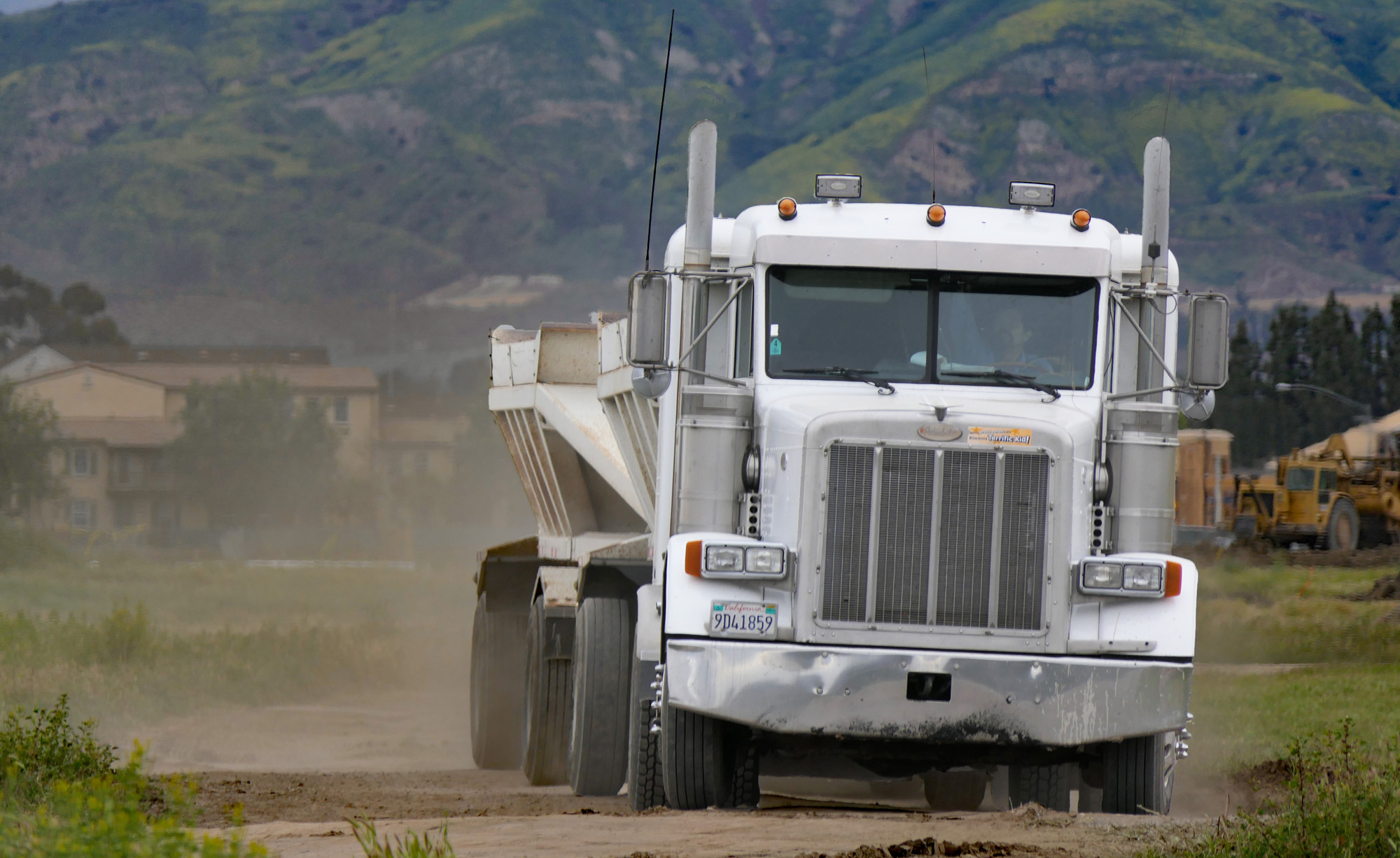The rest of you may be waiting for Congress to pass an infrastructure bill, but not us. In Irvine and other surrounding areas, it’s build, build, build. We have not one, but two Marine Corps bases that were shuttered in 1994, and after a seemingly endless set of negotiations, followed by a housing bust that brought everything to a halt, we’ve given developers the green light to build with abandon. This particular truck is hauling away dirt at MCAS Tustin (home of the blimp hangars that I’ll show you someday), but there’s also plenty of action at MCAS El Toro. All this construction is, naturally, a matter of huge controversy for the usual reasons of traffic and noise (and, um, the possibility of more low-income residents), but the voters have more-or-less spoken, and they voted to build. So that’s what we’re doing.



















